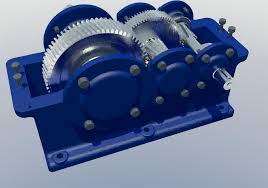Mobile:+86-311-808-126-83
Email:info@ydcastings.com
types of agitator impellers
Types of Agitator Impellers A Comprehensive Overview
Agitator impellers are critical components in fluid mixing processes, commonly used in various industries such as chemical processing, pharmaceuticals, food and beverage, and wastewater treatment. The design and functionality of agitator impellers can significantly influence mixing efficiency, product quality, and overall operational effectiveness. This article explores the various types of agitator impellers, their design characteristics, applications, and the principles behind their operation.
1. Axial Flow Impellers Axial flow impellers are designed to move fluid in a direction parallel to the impeller shaft. They are widely used for their ability to create a strong and uniform flow pattern, making them ideal for mixing and homogenizing large volumes of liquid.
Types of Axial Flow Impellers - Propellers Typically consisting of two or three blades, propellers are effective for low-viscosity fluids. They can operate at high speeds and are often employed in marine applications and wastewater treatment. - Helical or Screw Impellers These impellers have a helical design that promotes axial flow and are particularly useful in high-viscosity applications such as in the food industry for mixing thick pastes and slurries.
2. Radial Flow Impellers In contrast to axial flow impellers, radial flow impellers direct fluid flow outward from the impeller shaft. This type is particularly effective for applications that require significant shear mixing and are prevalent in the chemical and pharmaceutical industries.
Types of Radial Flow Impellers - Turbine Impellers A common type of radial flow impeller, turbine designs feature multiple flat blades positioned at an angle. They create turbulence and enhance mixing by generating both radial and axial flows, making them suitable for diverse applications. - Disc Impellers These simpler designs consist of a flat disc with or without blades. They are especially efficient for gas dispersion and in processes requiring moderate mixing energy.
types of agitator impellers

3. Mixed Flow Impellers Mixed flow impellers combine the properties of both axial and radial flow designs, providing a unique solution for various mixing problems. They are efficient in generating complex fluid motion and are often used when both high shear and strong pumping action are required.
Types of Mixed Flow Impellers - Angle Blade Impellers With blades angled in such a way as to create both axial and radial flow, these impellers are favored for applications requiring efficient mixing with low shear. - Pitched Blade Turbines These impellers have blades that can be pitched at different angles to manipulate flow patterns, making them highly versatile for applications across distinct industries.
4. Specialty Impellers Certain applications may require specialized impellers designed for specific mixing challenges. These specialty impellers include
- Static Mixers These devices do not require moving parts and rely on strategically placed elements to produce mixing through flow division and recombination. They are particularly efficient in processes where fouling can occur or where shear sensitivity is a concern. - Magnetic Impellers Utilized in applications requiring sterile conditions, magnetic impellers eliminate the need for seals and minimize contamination risks. They are widely employed in biopharmaceutical processes.
Conclusion Selecting the appropriate type of agitator impeller is crucial for optimizing the mixing process, enhancing product quality, and improving operational efficiency. Each type of impeller, whether axial, radial, mixed flow, or specialty, offers unique advantages suited to specific applications. Understanding the flow patterns, shear characteristics, and operational requirements is key to making informed decisions in the design and selection of agitator impellers. In a constantly evolving industrial landscape, advancements in technology and materials continue to foster innovative designs that bridge the gaps between efficiency and functionality, ultimately contributing to the success of mixing processes across various sectors. Whether through enhanced mixing capabilities, reduced energy consumption, or improved product consistency, the right agitator impeller can make a significant difference in processes critical to modern production.
-
Why Should You Invest in Superior Pump Castings for Your Equipment?NewsJun.09,2025
-
Unlock Performance Potential with Stainless Impellers and Aluminum End CapsNewsJun.09,2025
-
Revolutionize Your Machinery with Superior Cast Iron and Aluminum ComponentsNewsJun.09,2025
-
Revolutionize Fluid Dynamics with Premium Pump ComponentsNewsJun.09,2025
-
Optimizing Industrial Systems with Essential Valve ComponentsNewsJun.09,2025
-
Elevate Grid Efficiency with High-Precision Power CastingsNewsJun.09,2025











